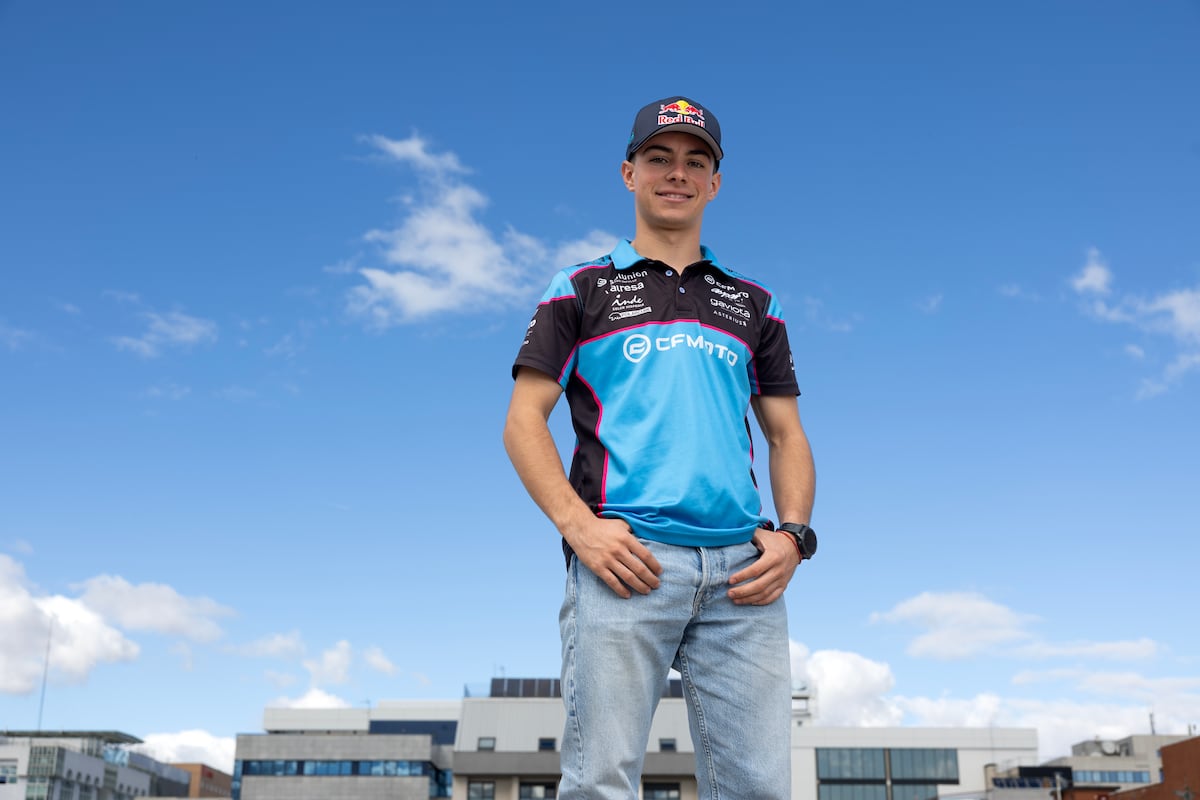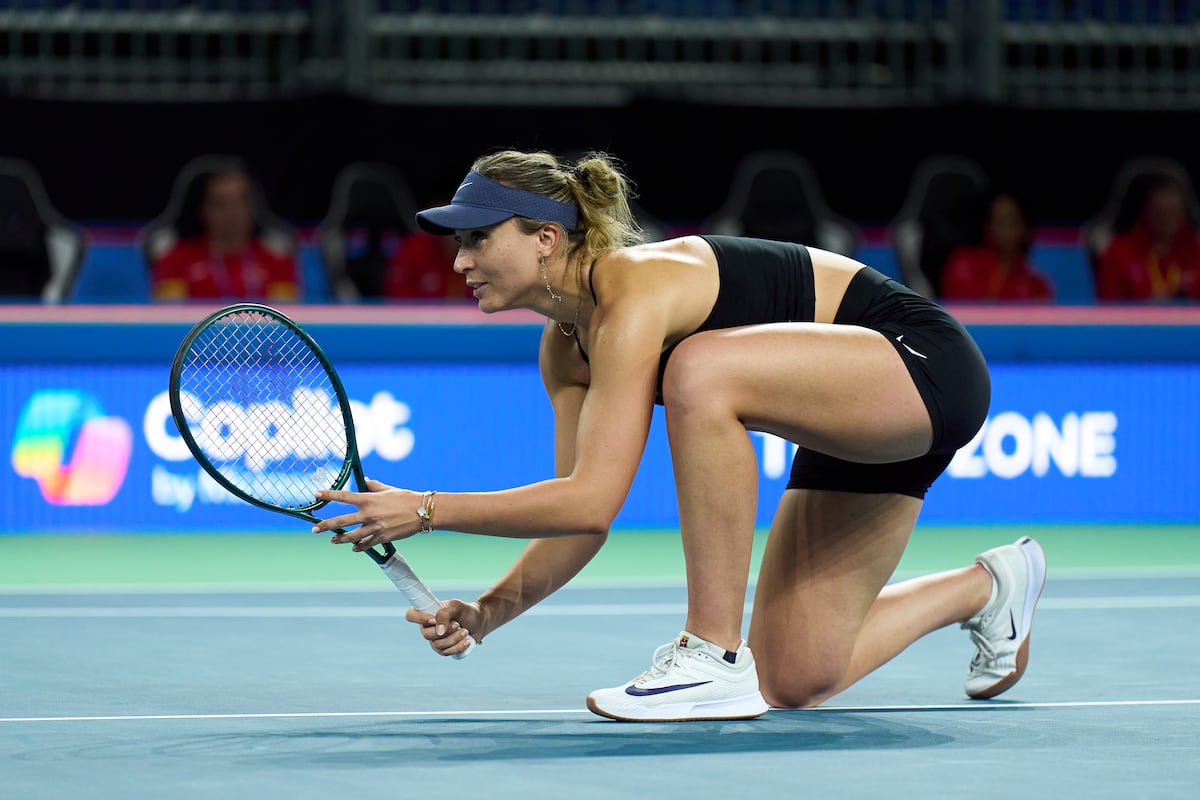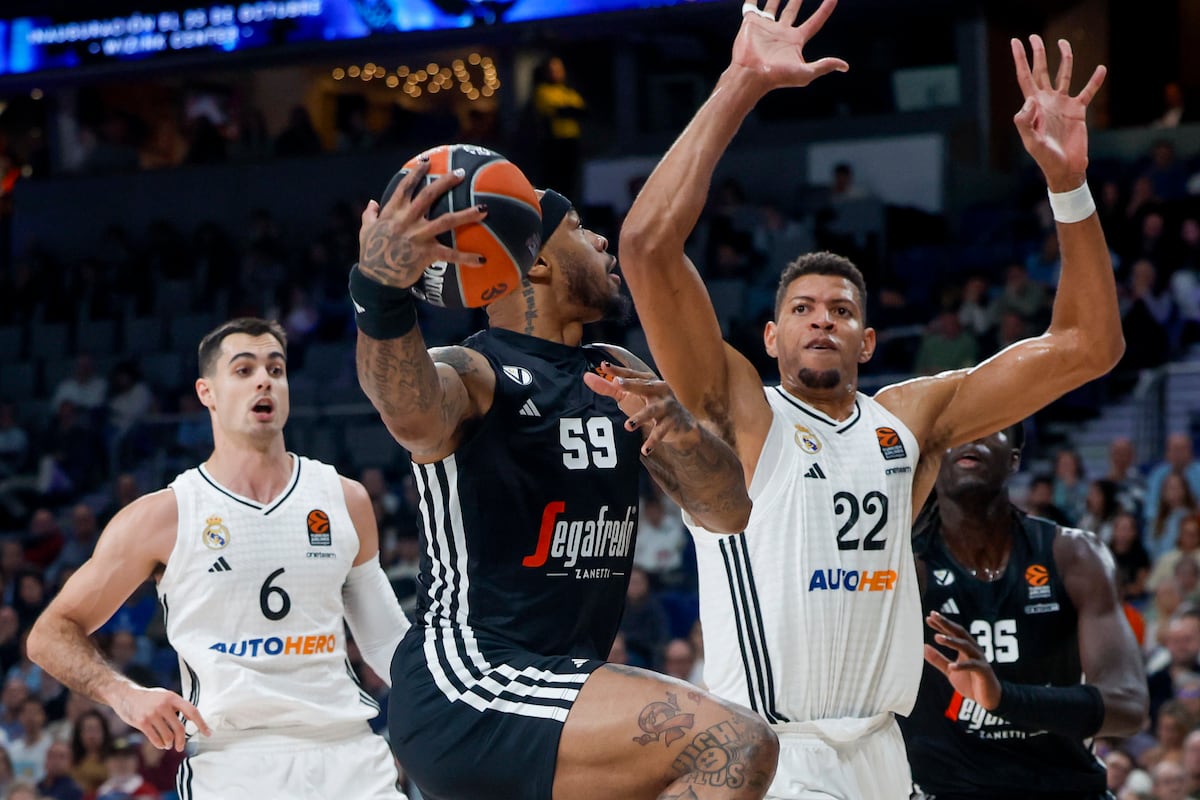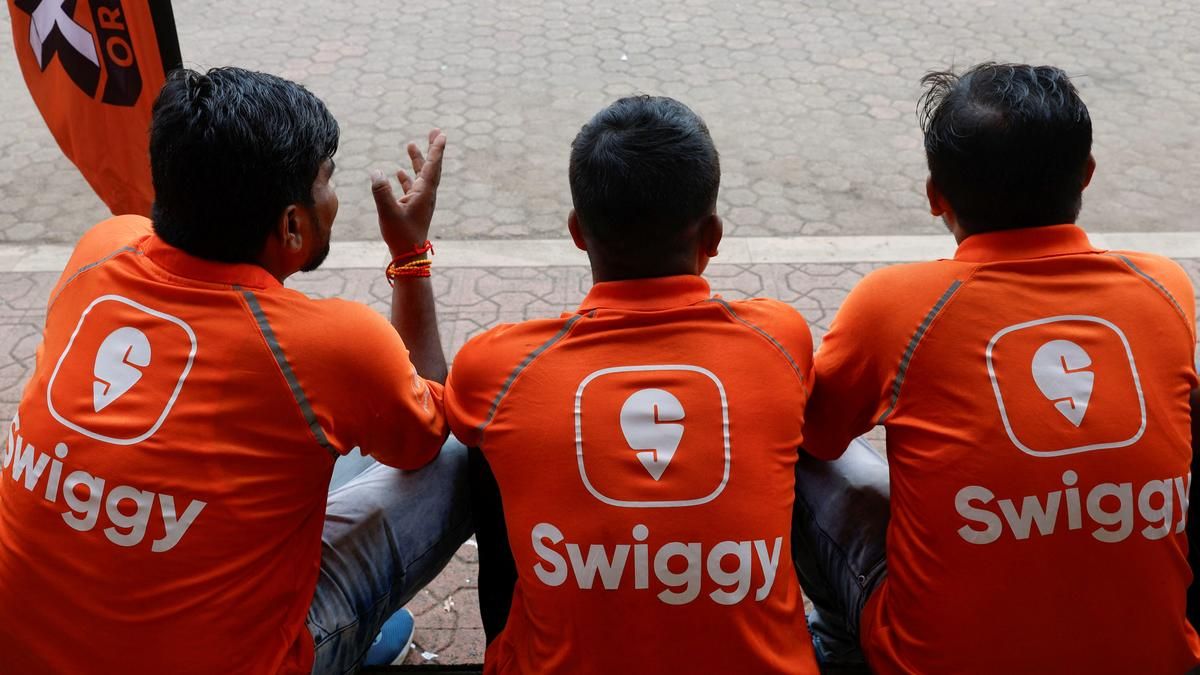David Alonso’s curiosity kills him. Bright-eyed, talkative, but also observant. He spends the entire morning from one place to another, attending to journalists, photographers and admirers. But he doesn’t lose his smile. smile of bracesinnocent, like him. That you know in a special moment and enjoy it. Alonso (Madrid, 18 years old) is one in a million. Not only because he has just been proclaimed Moto3 world champion, the small category of the motorcycle world championship (250cc and 4-stroke machines), but because of how he has done it. And from what it is sensed that it can do.
This weekend, at the Solidarity Grand Prix held at the Montmeló circuit – the last of the season, the benefits will go to Valencia – he can break a record: the 13 victories in a season that he achieved in his day Marc Marquez; A few weeks ago he surpassed the 11 of another myth, Valentino Rossi. And this Sunday he can set the bar at 14. Never seen before. Especially in a category in which the very characteristics of the motorcycles, lighter and easier to master, lead to multiple overtakes and dizzying finishes to the race; They are also tests in which the age of the pilots, around 20 years old, conditions the competition: they are daring, somewhat unconscious and usually irregular. The daring thing does suit Alonso, despite the fact that when he tried himself for the first time on a circuit as a teenager he feared the speed and was unable to give full throttle on the straight. Not anymore. The unconsciousness and irregularity does not affect him. That is why few doubt that he will achieve his 14th victory. Although he does not deviate from the focus: “There are more important things, like Valencia. We’ll race for them this weekend. Records are not sought, they are a consequence of work. It will be a special race, the last one as a Moto3 rider. So if we win, great, I will try to do my best, but we will be happy anyway.” There has not been a more sensible rider on a Moto3.
No more questions. It is small, fine and fibered. “I’m 164.5. That half centimeter matters. I’m fighting to reach 165. I have a lot of faith. At 21 I reached 166cm,” he says smiling. He is just worried about his height, which could be a handicap when he makes the jump next year. “Thanks to Pedrosa [160 cm] I worry less. It inspires me to think that if he, being so short, did what he did, I can do it too,” he says.
Short sleeve team t-shirt in the middle of November. Some jeans. And the cap on, as appropriate, as the sponsors command. Until he sits down to chat. He takes it off. He smoothes his hair. And continue with the questions. Question your interlocutor. He wants to know about the ins and outs of the biographies of his predecessors, but also about how to write a book from scratch or how this or that episode was experienced in the World Cup, when he was still a preschooler. But now he is the one who monopolizes many of the spotlights. He did it in Japan, where he won the title when there were still four grand prix to be played. After his last triumph, in Malaysia, two weekends ago, he showed incredible fortitude for his 18 years. That day, when hundreds of deaths in Valencia due to dana were already being mourned, he said: “Today there were few things to celebrate.”
Many of the mechanics had their families in Valencia, they were very worried. It was a different weekend, without the same laughter in the box
And it was not imposture. Almost the entire Aspar team, based in Picassent, in l’Horta Sud, is from that area of the province of Valencia devastated by dana. “Many of the mechanics had their families there, they were very worried. It was a different weekend, without the same laughter in the box, without the same jokes or pranks. It was more difficult to get out on the track. The team was in Sepang, but had its mind elsewhere, in Valencia. I had to be professional when going out to compete and try to think only about that, it sounds ugly, but you had to concentrate only on driving.”
A week later he headed to Valencia with his parents. “I spent the whole week nervous, because I wanted to go help. I went out on the bike to train and I didn’t feel well; “I thought about all those who were removing mud from their houses.” As soon as his parents finished work on Friday, they took the car. And he was able to accompany the boss, Jorge Martínez Aspar, the man who gave him the confidence and had the patience necessary to see him succeed today, a native of Alzira, to remove mud and lend a hand in the affected areas near home. They went to Algemesí, where some of their mechanics are from. “It was very hard, you got goosebumps; but it was also nice to see all those people involved in helping; people who didn’t even know each other working as a team to bail out water; others distributing food…”
The team, who fell in love with him from first to last, also came, in part, because of his curiosity and generosity. On the circuits of Spain, where they compete in lower categories, little Alonso walked around the paddock and he looked out every afternoon at the Aspar trucks: “he asked the mechanics who were cleaning the motorcycle’s fairing how their day had gone; My bike almost always failed, they also asked me how it had gone and despite the technical failures I never complained.” It was a full courtship. Until Nico Terol fell, who has been his guide since then. He is so inquisitive — “I like to understand why things happen,” he confesses — that they have even asked him to forget if the motorcycle has this or that development and why; and focus only on driving.
When you train with Márquez you realize that eight World Cups are not given away. He doesn’t even want to lose the marbles
To learn, he has taken advantage of the occasional invitation from one of his idols, Marc Márquez, with whom he has shared training. “When you see it you understand that eight World Cups are not given away. And I’m not just saying this because of his driving, but also because of his attitude. And the hunger he has to win. He doesn’t want to lose even playing marbles. We were training and it seemed like we were playing for the World Cup. I have learned a lot from him, I always try to listen to him.”
Just four years ago, when competing in the European championship, David Alonso decided he wanted to race under a Colombian license, to honor his mother, Marcela, and his country of origin. Like Mondo Duplantis, an American with a Swedish mother. “It is good for the championship that there are different nationalities. Although I feel as Colombian as I do Spanish. In the end, you can’t choose between your father and your mother, the same thing happens with this.” His success, of course, has now made him a phenomenon in Colombia. “It is a country where sports are lived with great passion. And if there is a countryman there who stands out, whatever the sport, they get very involved. The engine is not very developed there, but more and more people know us. We have seen Colombian flags in all the circuits we have been to. In the United States and Australia I even heard people singing the anthem from the podium. It was very nice.”
The auction will come this weekend in Montmeló. In addition to their parents, their grandparents will travel there. The four. From Madrid and from Medellín. To admire and embrace the wonder child of motorcycling.







